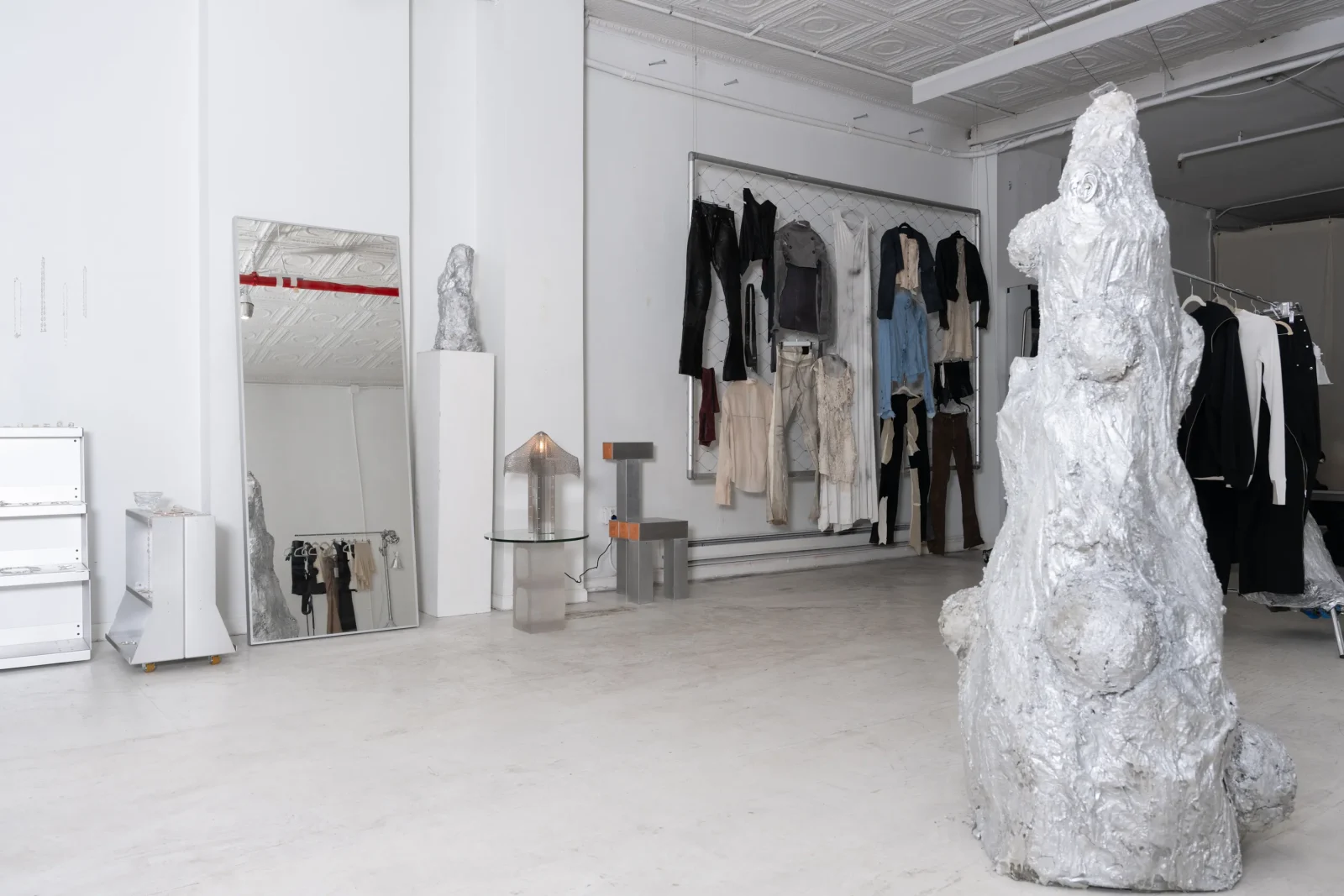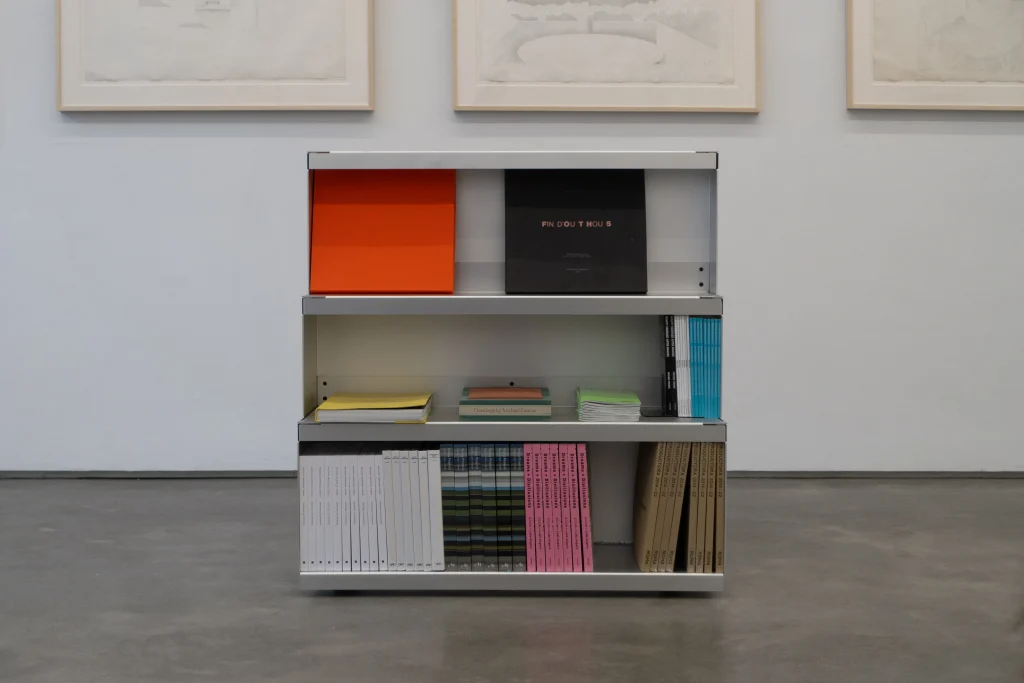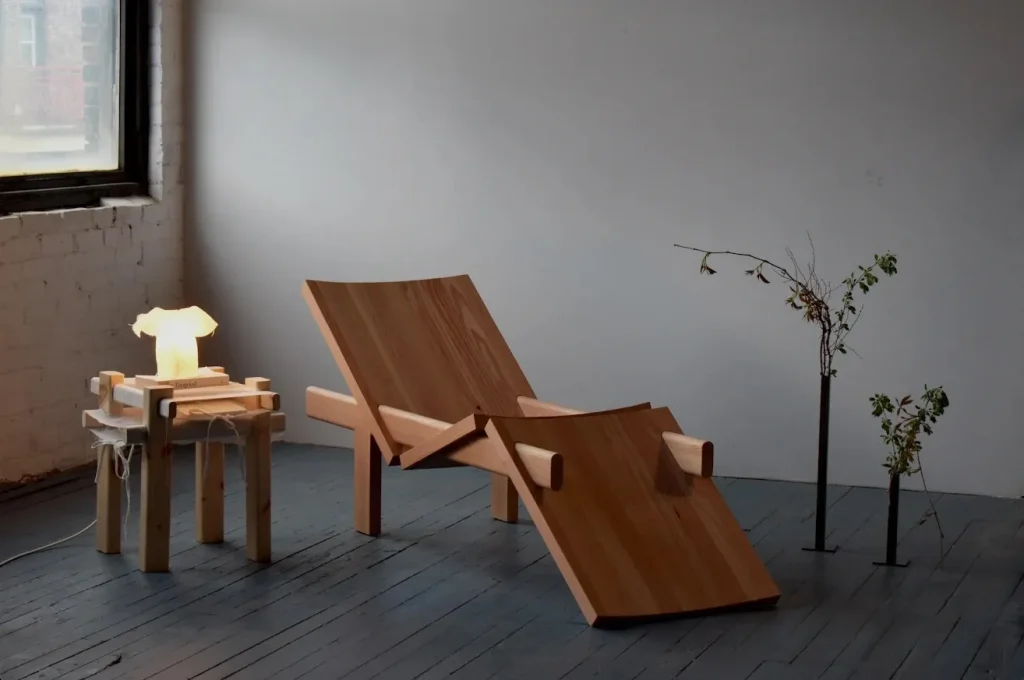
“Echoes of Alchemy” by Irthi: A Cross-Cultural Examination of Sustainability, Gastronomy and Cultural Heritage
Alchemy, an ancient practice spanning centuries and cultures, was fundamentally about transformation, taking materials and purifying them to their most basic elements. Inspired by this approach, the Irthi Contemporary Crafts Council based in Sharjah, UAE, joined forces with the Italian creative consultancy studio Mr. Lawrence to distil Emirati recipes of construction and gastronomy to its fundamentals. Ultimately, they bridged the Emirati-Mediterranean cultural divide through a universal language centred around cultural practices attached to hospitality, design, and architecture.
An ambitious and multifaceted research-based design project was conceived, marked by the Council’s mission to empower women and their ongoing efforts to develop a sustainable environment in which local and traditional crafts can flourish. Together with the Italian design studio Studipepe, a collection of food instruments was created and brought to life through a dining experience curated by Casalinghe di Tokyo, presented on unique tables conceived by Civil Architecture and designed by Mr. Lawrence studio during the “Echoes of Alchemy” exhibition at this year’s Milan Design Week.


“Echoes of Alchemy” signifies a new chapter of Irthi’s endeavour in uncovering the importance of making and consuming within domestic and constructed realms. As a result, methods directly relating to excavation, harvest, preservation, and craftmanship were uncovered, representing the Council’s mission to restore the true meaning of sustainability.
The idea behind “Echoes of Alchemy” was born during a research trip to Sharjah, where food crystallized as the main object of investigation. “[W]hen we went to Sharjah [to conduct] research, […] we discovered that we have a lot of connection between Mediterranean culture and Arabic traditions in terms of ingredients, but also in terms of process and sometimes also in terms of recipes,” Francesco Mainardi from Mr. Lawrence recalls. The resulting research was materialized through four in-depth publications centred around recipes and food preservation traditions, the return to the vernacular by mapping the Emirati environment as well as traditional craft techniques.


Throughout this project, Irthi was specifically concerned with issues of sustainability connected to food and cultural heritage, creating research and designs that allow for knowledge to be transferred to future generations. “[D]ue to the industrialized nature of today’s world, material is displaced and disconnected from where it is sourced, shipped, and traded, generating environmental issues and movement away from the local crafts […],” Farah Nasri, Irthi’s Acting Manager – Curation & Design, emphasizes. “[T]his project was an attempt of the Council to actually go back to sustainable materials, sustainable means and sustainable processes and involve the women that are behind such recipes to be able to collaborate and apply the craft of gastronomy.”






As part of “Echoes of Alchemy”, Irthi is presenting four collections: the Sofra collection, the Bahri collection, the Thaya collection, and the Design Lab II collection. Each collection fosters a cross-cultural understanding of matters surrounding food consumption and preservation, traditional craft techniques and the importance of nurturing cultural heritage.
For the Sofra collection, Studiopepe transfigured archetypal shapes of Emirati architecture into food preservation objects by shaping and firing black clay. “[W]e saw the ancient techniques to preserve and prepare food. We visited Sharjah where we took a great inspiration about how the alchemists use their tools to transform the matter, the elements,” Arianna Lelli Mami from Studiopepe explains. Wrapped in handwoven palm frond weaves using the “Al Safafah” and “Al Zaffanah” techniques and cotton weaves using the “Al Faroukha” craft, the final sculptural objects can be introduced into one’s daily life for cooling, drying, and fermenting purposes.






Elevating traditional crafts and transposing them into a contemporary context is also the leitmotif throughout the Bahri collection – a series of tableware items inspired by the “Al Gargour” craft. “[Al Gargour] is the traditional famous craft of making fishing nets, which still actually exists in modern days,” explains the designer Eman Al Rahma. Working with this age-old craft that involves intricate metal wiring, the Gargour baskets in conjunction with clay covers, “Jali”, were created.
In a similar vein, the multidisciplinary designer Reem Saif Almazroui built onto the existing Thaya collection by adding an array of tableware objects realized through Irthi’s skilled craftswomen. Using “Safeefah” weaving, they constructed traditional food covers, “Makkabah”, and complementary leather trays with a modern twist as they embossed unique “Sadu” motifs onto each tray, taking inspiration from the Emirati environment and animals. Reflecting on her experience working on “Echoes of Alchemy”, Almazroui states that: “[B]being an Emirati designer coming from a culture and heritage that goes around food, recipes, and hospitality – [thinking of] my mother and grandmother’s recipes – and seeing it coming all together through this experience […] was really interesting for me.“


“[F]ood and gastronomy itself, which we consider as the result of a cultural process, can transcend political borders. So we all have to remember that all this heritage can connect many cultures and many people. And food is the key to this new alphabet.”
– Alice Schillaci, founder of Casalinghe di Tokyo




In this sense, the designers and artisans involved became their own alchemists creating objects that transform how we treat food with the end goal being to contribute to a sustainable tomorrow. “Referencing these traditional methods, excavating them, harvesting them, preserving them all through crafts is a continuing education to the community and a continuing education on how we may lead more sustainable lives […],” Nasri elaborates. These efforts by Irthi and Mr. Lawrence culminated during Milan Design Week where the unique design objects were utilized during a carefully curated dinner by Casalinghe di Tokyo, showcasing the power of Emirati craftsmanship and tradition in a contemporary context.
BIO
Representing both traditional and modern crafts across the MENASEA and Central Asia regions, working with partner organisations, and championing artisans and designers, the Irthi Contemporary Crafts Council is looking at the empowerment of women professionally and socially.
The council aims to provide a fresh narrative for women, by developing new market opportunities, and sectors, delivering social development programs and vocational training, as well as preserving the skills and rich cultural heritage of the UAE for current and future generations through its five initiatives:
– Bidwa Social Development Programme, which employs 40 artisans and provides them with vocational training and helps them find new markets for their skills through commercial collaborations and regional artisan exchange programmes.
– Artisan Skills Exchange Programme, which enables the development of artisans’ capacities and technical skills as well as social development through a series of artisanal skill exchanges within the MENASEA region.
– Hirfati Youth Programme that seeks to train and engage with the next generation of designers and artists through a mix of activities that combine traditional and contemporary crafts.
– Azyame Fashion Entrepreneurs Programme that aims to develop the next generation of UAE-based fashion designers through training, mentoring and business development.
– Crafts Dialogue, a unique project that brings together the Council with Barcelona-based Creative Dialogue to create works, which will marry Emirati and international crafts into contemporary designs.
Irthi Contemporary Crafts Council is an affiliate of NAMA Women Advancement Establishment, an organisation that was established under an Amiri decree by His Highness Sheikh Dr Sultan bin Muhammad Al Qasimi, Member of the Supreme Council and Ruler of Sharjah, and is chaired by Her Highness Sheikha Jawaher bint Mohammed Al Qasimi, wife of His Highness the Ruler of Sharjah.










